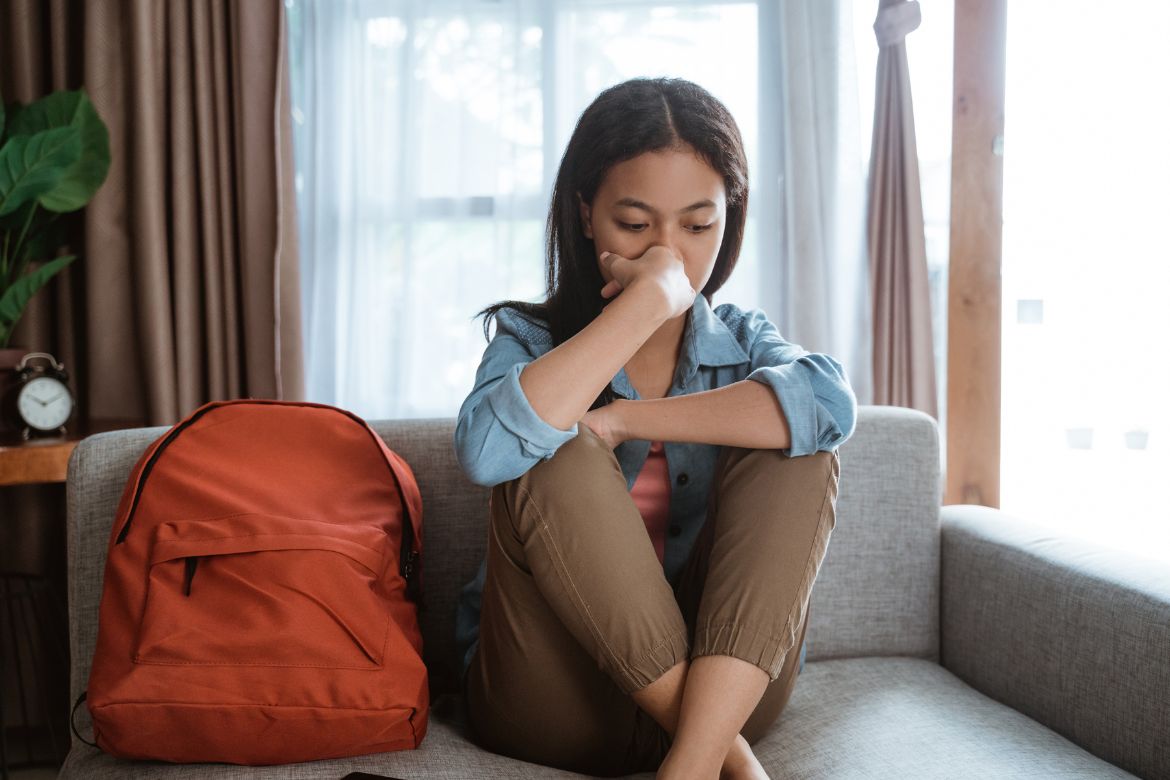
Worry, Stress and Anxiety: What’s the Difference?
by Counseling and Wellness Center of PittsburghAugust 15, 2023 anxiety, Anxiety and Stress, anxiety disorders, anxiety treatment, generalized anxiety disorder therapy pittsburgh, social anxiety, stress, stress management, stress responses, therapy for anxiety, worry0 comments
As a Therapist at the Counseling and Wellness Center of Pittsburgh, I frequently encounter a prevalent concern among clients – the pervasive presence of stress and anxiety in their daily experiences. Without a doubt, stress and anxiety can be unsettling, and they can feel particularly intense when they appear to pose a threat to one’s well-being. However, in instances where...Learn More
What Are Intrusive Thoughts? And What Can You Do About Them?
by Counseling and Wellness Center of PittsburghMarch 9, 2023 anxiety, CBT, cognitive behavior therapy, cognitive behavioral therapy, instrusive thoughts, obsessive compulsive disorder, OCD, post traumatic stress disorder, ptsd0 comments
Intrusive thoughts can occur at any time and are just as they sound—intrusive! Intrusive thoughts are thoughts that come out of nowhere, are involuntary, and can be difficult to get rid of. Common examples of intrusive thoughts include wondering if the doors are locked, if the stove or curling iron is turned off, or if people like you.
Everyone experiences intrusive thoughts at some...Learn More
Gut Health and Mental Health, What’s the Link?
by Counseling and Wellness Center of PittsburghNovember 10, 2022 anti-inflammatory diet, anxiety, depression, dietician, dietitian, dietitian nutritionist, dietitian nutritionist near me, gut health, gut health and mental health, healthy eating, healthy food, intuitive eating, keto diet, mental health, nutrition, Nutrition Counseling, Nutritionist, registered dietitian, registered licensed dietitian0 comments
In more recent years, studies have been emerging that focus on the possible connection between gut health and mental health disorders, including anxiety and depression. The microbiome makes up all microorganisms in the human body. The microbiota encompasses all the microorganisms in a particular location, such as the GI tract. These together are developed while in the womb. During...Learn More
Signs Your Child Is Involved in Too Many Extracurricular Activities
by Counseling and Wellness Center of PittsburghOctober 5, 2022 anxiety in children, burn out, Child Anxiety, child counseling, children mental health, Extracurricular Activities for Kids, Overscheduled children, parenting, Parenting and Families, stress, stress management, teen anxiety, wellness for kids0 comments
Every good parent knows that providing an enriching environment lays the foundation for future success. Or does it? From summer camp, to instrument lessons, and afterschool programs, how many extracurricular activities are too many and where do parents’ good intentions bleed into something less helpful and even have the unintentional consequence of creating a stressful and...Learn More
How to Help a Teenager With Anxiety
by Counseling and Wellness Center of PittsburghAugust 31, 2022 anger, anxiety, anxiety therapy pittsburgh, help for anxiety, mental health, social anxiety, teen anxiety, therapy for anxiety, treatment for anxiety, treatment for anxiety disorder0 comments
Teenagers often have worries and intrusive thoughts that can lead to ongoing anxiety. One of the most common types is Generalized Anxiety. The DSM-V explains Generalized Anxiety Disorder as, “excessive anxiety and worry occurring more days than not for at least 6 months, about a number of events or activities such as work or school performance.” Anxiety can have physical and...Learn More
10 Things Your Therapist Wants You to Know
by Counseling and Wellness Center of PittsburghJune 2, 2022 adult therapy, anxiety, CBT, cognitive behavioral therapy, cognitive distortions, coping skills, counseling, depression, Emotional Health, emotional intelligence, emotional iq, exercise for gratitude, goals, gratitude, mental health, personal growth, therapists0 comments
Our therapists are here to offer mental wellness support with specific interventions to treat all major mental health disorders including anxiety, depression, grief and trauma as well as relationship issues or any life stressors that you are dealing with. We teach you new coping skills for a variety of relational, emotional, and psychological issues so that you can enjoy your...Learn More
